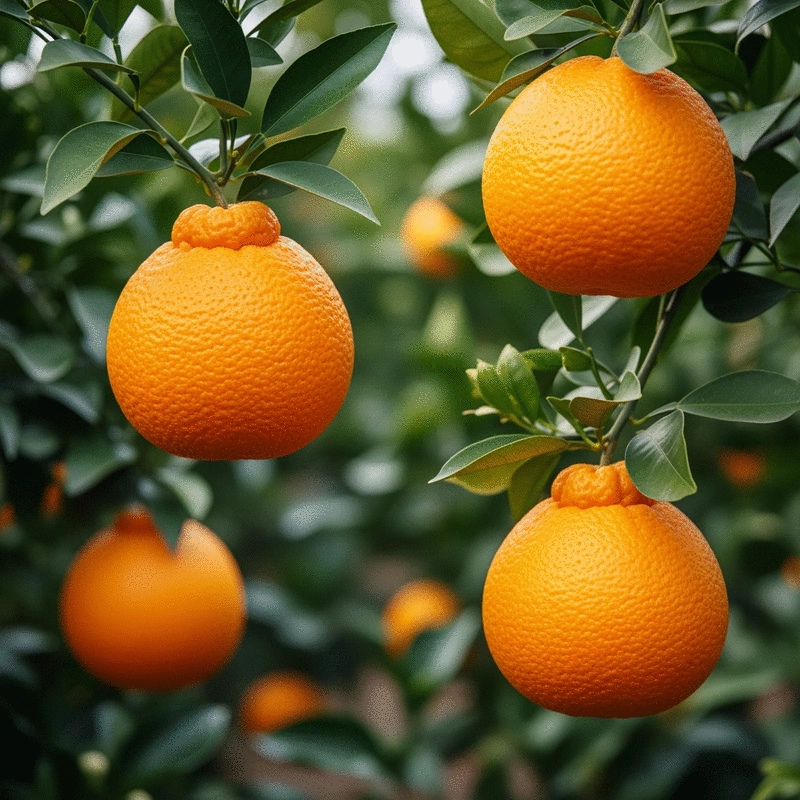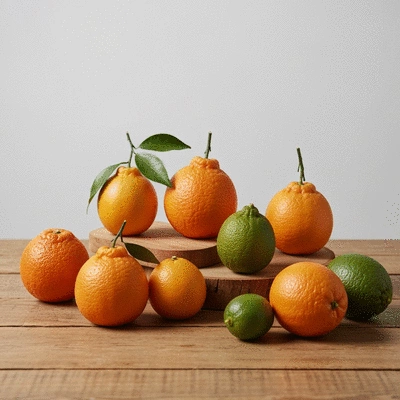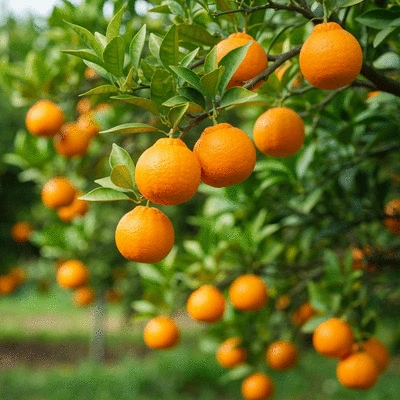Techniques for Rare Orange Varieties

Have you ever considered the hidden potential within your garden? Rare orange varieties offer unique flavors and sustainable practices that can transform your horticultural experience. As you dive into the world of these exotic fruits, you'll discover the benefits they bring to both your taste buds and the environment.
What You Will Learn
- Rare orange varieties boast unique flavors and textures that distinguish them from common oranges.
- Understanding the specific characteristics of each variety can enhance your gardening success.
- Growing rare oranges can promote biodiversity and support sustainable gardening practices.
- Implementing seasonal care routines is crucial for the health and yield of your orange trees.
- Recognizing signs of plant stress early can prevent more severe issues down the line.
- Disease resistance measures are vital for protecting your rare orange varieties.
Seasonal Care and Stress Indicators for Rare Orange Varieties
This visual outlines essential seasonal care guidelines and common stress indicators to ensure the long-term health and maximized yield of rare orange varieties. Proactive management and early detection are key to successful cultivation, and for more tips on successful citrus cultivation, check out our guide on growing oranges in your backyard.
Seasonal Care Guidelines
Spring: Prune lightly, encourage new growth.
Summer: Monitor pests, adjust watering.
Fall: Fertilize with organic blend.
Winter: Protect from frost.
Plant Stress Indicators
Wilting Leaves: Insufficient water or root issues.
Leaf Discoloration: Nutrient deficiency, overwatering.
Poor Fruit Dev.: Lack of pollination, disease.
Understanding Rare Orange Varieties and Their Unique Needs
Have you ever wondered what sets rare orange varieties apart from the common ones? Growing rare oranges can be an exciting journey, and understanding their unique needs is essential for a thriving citrus garden. These exotic fruits often boast distinctive flavors, vibrant colors, and a variety of characteristics that make them truly special.
From the rare finger lime with its caviar-like pearls to the sweet and tangy blood orange, each variety has its own story and unique requirements. Embracing these differences will not only enhance your gardening skills but also enrich your experience as a horticulturist.

What Makes Rare Orange Varieties Stand Out?
Rare orange varieties stand out for several reasons. First, they often have unique flavors and textures that cannot be found in standard oranges. For instance, the Calamondin orange offers a tartness that is perfect for making marinades and dressings.
- Flavor Profile: Many rare varieties have distinct tastes, ranging from sweet to tangy.
- Visual Appeal: Their bright colors and unusual shapes make them attractive additions to any garden.
- Rarity: The scarcity of these varieties can enhance their desirability among gardeners and fruit enthusiasts.
By growing these unique fruits, you not only diversify your garden but also contribute to the conservation of heritage and heirloom varieties, which is a cause close to my heart as the founder of Orange Insights. For more details on what varieties thrive in your region, consider exploring orange varieties for Australian climates.
Characteristics of Exotic Citrus
Exotic citrus varieties often exhibit a range of fascinating characteristics. Their skins may be thicker or thinner than typical oranges, and their leaf shapes might differ significantly. For example, the Bergamot orange has a distinctive fragrance, known for its use in perfumes and Earl Grey tea.
Understanding these characteristics is key to meeting their needs. When you know what to expect, you can tailor your care methods to suit each variety. This approach not only results in healthier plants but can also lead to a more bountiful harvest!
Benefits of Growing Rare Varieties in Your Garden
Investing time in cultivating rare orange varieties comes with numerous rewards. Aside from their unique flavors, they offer a chance to engage in sustainable gardening practices. You'll be supporting biodiversity and perhaps even discovering new culinary uses for your home-grown fruits!
- Enhances biodiversity in your garden, promoting a healthier ecosystem.
- Opportunity to experiment with different recipes and flavors.
- Potential to connect with local markets or niche communities that appreciate rare fruits.
It’s an exciting venture, and as a passionate horticulturist, I encourage you to explore these options in your garden.
Exploring Heirloom Varieties and Their Benefits
Heirloom orange varieties are a treasure trove for any gardener. These old-fashioned cultivars have been passed down through generations, preserving unique flavors and characteristics. One such variety is the Valencia orange, renowned for its juiciness and sweetness, perfect for fresh-squeezed juice!
By adding heirloom varieties to your garden, you’re not only cultivating rare fruits but also participating in a rich gardening tradition. This connection to the past, coupled with the benefits of sustainable practices, makes heirloom oranges a rewarding choice.
Frequently Asked Questions About Rare Orange Varieties
Here are some common questions about cultivating and caring for rare orange varieties:
- Q: What makes an orange variety "rare"?
- A: Rare orange varieties are often distinguished by their unique flavors, unusual textures, vibrant colors, or specific growing requirements that make them less common than standard oranges. They may also be heirloom varieties preserved over generations.
- Q: What are some examples of rare orange varieties?
- A: Examples include Finger Limes (known for their caviar-like pearls), Blood Oranges (for their distinct color and flavor), Calamondin oranges (tart and great for cooking), and Bergamot oranges (valued for their fragrance in teas and perfumes).
- Q: How do the care requirements for rare oranges differ from common oranges?
- A: While basic citrus care principles apply, rare varieties may have more specific needs regarding soil type, water, temperature, and sun exposure. Understanding these unique characteristics is key to their successful cultivation.
- Q: What are the benefits of growing rare orange varieties?
- A: Growing rare varieties enhances garden biodiversity, offers unique culinary experiences, supports the conservation of heritage and heirloom fruits, and allows gardeners to connect with niche communities.
- Q: How can I identify signs of stress in my rare orange trees?
- A: Common stress indicators include wilting leaves (often due to insufficient water), leaf discoloration (nutrient deficiency or overwatering), and poor fruit development (lack of pollination or disease). Early detection and intervention are crucial.
Pro Tip
To truly embrace the uniqueness of rare orange varieties, consider starting a "taste test" garden! Plant different varieties side by side and document their flavors, colors, and growth characteristics. Not only will this help you understand their individual needs better, but it will also allow you to discover the best tasting oranges for your culinary creations!
Sustaining Growth and Maximizing Yield
When it comes to nurturing rare orange varieties, understanding their long-term care needs is key to achieving a bountiful harvest. Each unique variety may have specific requirements, but there are fundamental principles that can help you ensure they thrive year after year. As a passionate horticulturist, I've learned that consistency in care often leads to the most rewarding outcomes!

Long-Term Care Tips for Rare Orange Varieties
To keep your rare orange trees healthy and productive, it’s essential to follow seasonal care guidelines. Here are some helpful tips to ensure your trees remain strong and vibrant throughout the year:
- Spring: Prune lightly to encourage new growth and remove any dead or damaged branches.
- Summer: Monitor for pests and adjust your watering frequency based on rainfall.
- Fall: Fertilize with an organic blend to prepare trees for cooler months.
- Winter: Protect young trees from frost with mulch or protective coverings.
Recognizing signs of stress in your plants is equally important. Stress may manifest as yellowing leaves, stunted growth, or fruit drop. Stay alert for these signs and address issues promptly to maintain plant health. In my experience, early intervention can save your trees from more severe problems down the line!
Seasonal Care Guidelines to Follow
Following a seasonal care routine can help your rare orange varieties flourish. Each season presents unique challenges and opportunities for growth. Here’s a quick overview of what to focus on:
- Monitor soil moisture and adjust watering as needed.
- Check for nutrient deficiencies and adjust fertilization.
- Conduct regular pest inspections, especially in warmer months.
Implementing these guidelines will not only help your orange trees thrive but also maximize your yield. Remember, a little attention goes a long way!
Recognizing Signs of Stress in Your Plants
It's crucial to know what to look for when your trees may be under stress. Common indicators include:
- Wilting leaves: This may indicate insufficient watering or root issues.
- Leaf discoloration: Yellowing leaves often signify nutrient deficiencies or overwatering.
- Poor fruit development: This may suggest a lack of pollination or disease.
Being proactive about these signs allows you to take action before the situation worsens. Trust me; early detection can make all the difference!
Implementing Disease Resistance Measures in Your Orchard
Taking steps to manage and prevent diseases is vital for the long-term health of your rare orange varieties. Here are some effective measures:
- Choose disease-resistant cultivars: This can help minimize the risk of common citrus diseases.
- Practice good hygiene: Clean tools and maintain a tidy garden to prevent disease spread.
- Rotate crops: This practice can disrupt the life cycles of certain pathogens.
By implementing these disease resistance measures, you’ll not only protect your trees but also contribute to a more sustainable garden environment. After all, at Orange Insights, we believe in combining functionality with sustainability! For more advanced strategies on caring for your plants, consider exploring sustainable orange farming in Australia.
Recap of Key Points
Here is a quick recap of the important points discussed in the article:
- Rare orange varieties offer unique flavors and visual appeal, enhancing your garden's diversity.
- Understanding the specific characteristics and care needs of each variety is crucial for successful cultivation.
- Implementing seasonal care guidelines can help maximize yield and ensure healthy trees.
- Recognizing signs of stress early allows for timely intervention, preventing more severe issues.
- Choosing disease-resistant cultivars and practicing good hygiene are essential for maintaining plant health.
Popular Posts
 What if a little seasonal care could transform your orange trees from ordinary to extraordinary? Und
What if a little seasonal care could transform your orange trees from ordinary to extraordinary? Und
 Reducing waste in orange production is more than just a trend; it's a commitment towards sustainabil
Reducing waste in orange production is more than just a trend; it's a commitment towards sustainabil
 Have you ever considered how a simple fruit like an orange can elevate your summer desserts? With th
Have you ever considered how a simple fruit like an orange can elevate your summer desserts? With th
 Are you ready to make a difference with every bite you take? Embracing organic oranges not only tant
Are you ready to make a difference with every bite you take? Embracing organic oranges not only tant
